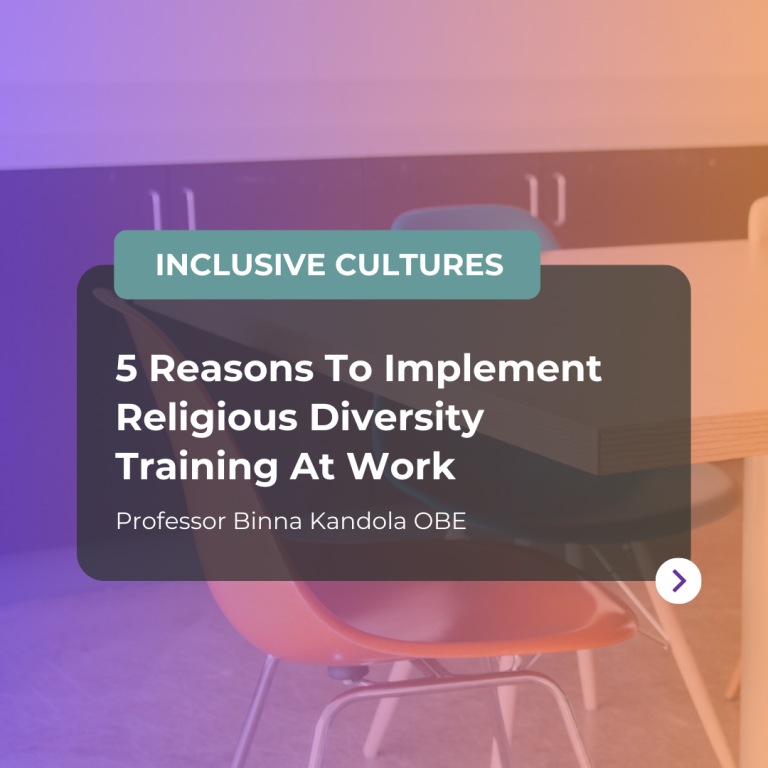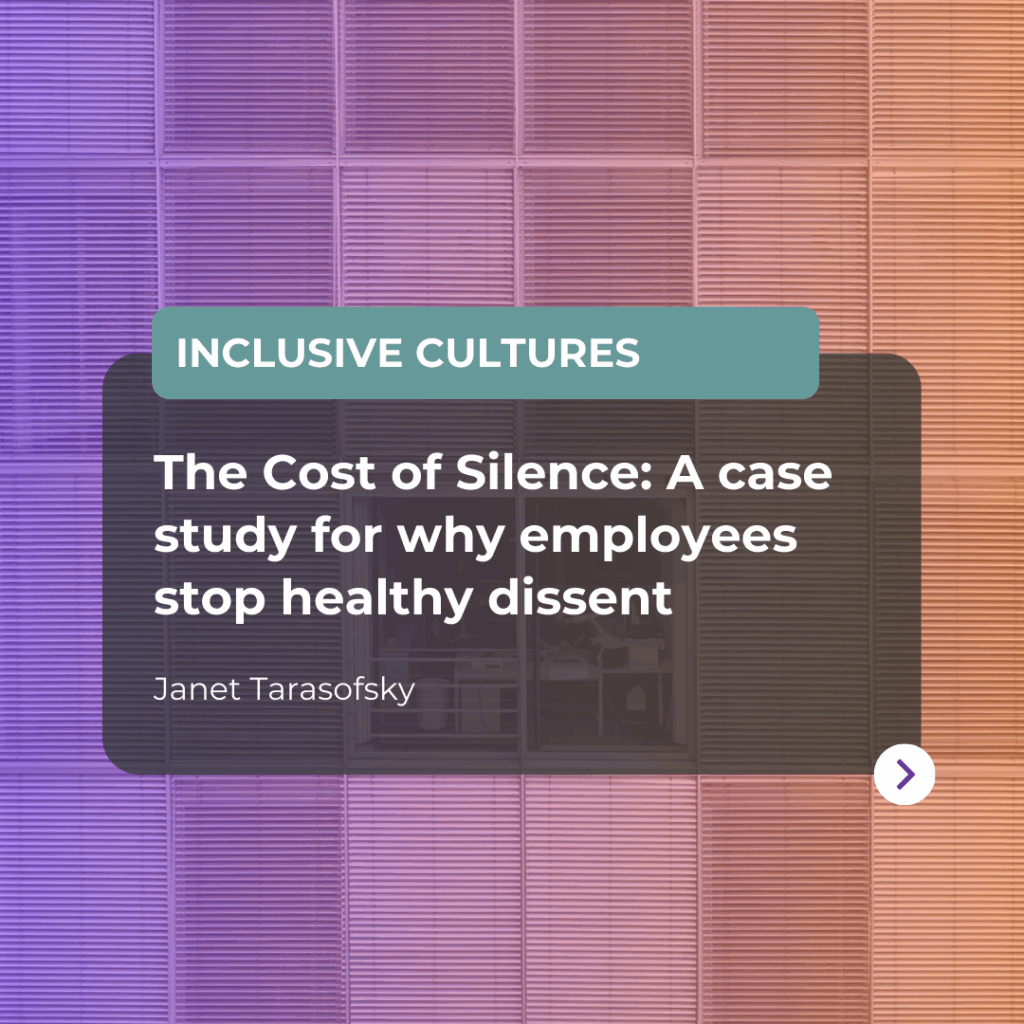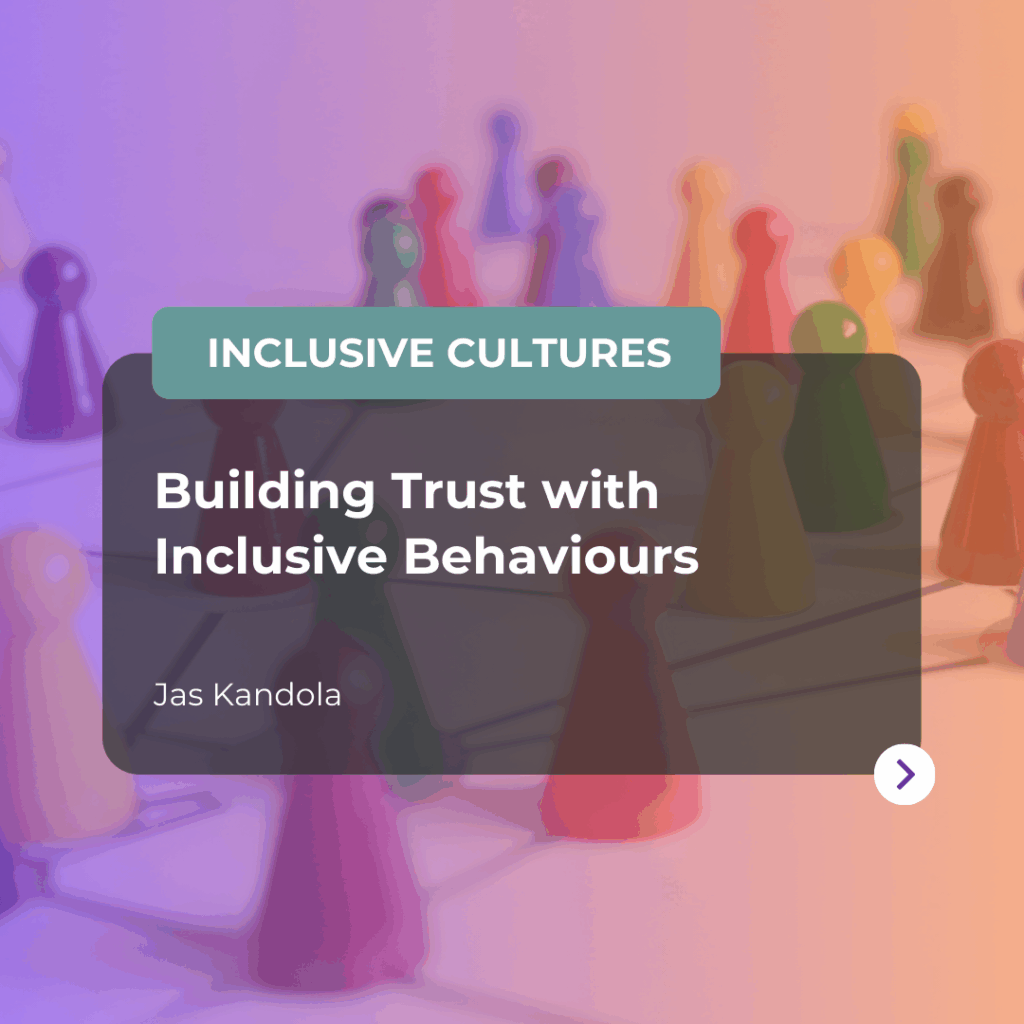In today’s business landscape, we hear more and more about the importance of diversity and inclusion initiatives. But while there’s often a great deal of attention paid to combatting sexism and racism – rightly so – the question of religious inclusion is largely overlooked.
With the Pearn Kandola ‘Religion at Work’ research project, our aim was to rectify this. For people who have faith, their religion is a crucial part of their lives and identity. We wanted to understand their experiences in the workplace, the obstacles they face when it comes to religious expression, and to make the case for all organisations to implement religious diversity training.
1. We need to better understand the barriers religious employees face
A survey in 2017 found that over 91% of organisations believe they are religiously inclusive. But a key finding from our own research – and our first reason for implementing a religious diversity initiative – was that staff clearly don’t feel the same way. Likewise, it seems very few senior leaders have made the effort to actually speak with colleagues about how inclusive their workplaces feel.
There’s a sense of complacency on the part of many organisations – a sense that it’s not only difficult to talk about religion, but also that it’s private. This combination of factors means we don’t talk about it, leaving managers unaware of the accommodations their colleagues may need to express or observe their beliefs, and employees feeling unable to communicate those needs to their employer.
We need senior leaders to talk about religion. They may not have faith themselves, but to be truly inclusive, there has to be an understanding of the challenges faced.
2. Religious expression can improve wellbeing
People are at their best when they can bring their true and authentic selves to work. By feeling we can share our experiences, we’re happier, more productive and enjoy a greater sense of wellbeing. With disability, for instance, research has found that when a person with a non-visible disability reveals it, they are two-and-a-half times happier than those who conceal. It’s a weight off your shoulders to not have to hide it. The same is true of religious expression.
I’ve spoken with a Chief Executive who says he has to be careful telling colleagues what he did at the weekend – he always shares what he did on Saturday, but never that he went to church on Sunday. This is not an uncommon scenario. Whether they realise it or not, our research has found that believers are constantly having to grapple with this dilemma. They’re concerned about being stereotyped – about playing into the idea of what a believer is like – and feel they must decide whether to conceal or reveal their faith.
We shouldn’t understate the profound effect of suppressing our true selves in this way. For believers, their faith isn’t a hobby. In truth, you can’t get more authentic. With that in mind, achieving genuine, sincere religious inclusion will help to foster a happier, healthier and more productive workforce.
3. Religious expression can improve relationships with colleagues
When people of faith worry about sharing their beliefs, what they’re often concerned about is whether the environment around them is safe. They worry about how their colleagues will see them, and fear facing judgement and exclusion if they decide to disclose that aspect of themselves.
In organisations that have an open attitude and a genuinely inclusive environment, our report has found that people of faith are often met with openness. Within these environments, we’ve heard that colleagues are interested in learning more about their beliefs. They offer support and encouragement, enjoy better awareness and understanding of the accommodations that might be needed, and over time, relationships between co-workers actually improve as a result.
4. Discrimination is happening
Despite the many benefits that our report has uncovered, we also found that in some organisations, fears over expressing religious beliefs were well-founded. During the course of our research, we heard from people who had been stereotyped and discriminated against, mocked, mistreated and excluded, all for simply expressing their beliefs.
It’s clear from these experiences that many people are not receiving the support they should be granted to express their beliefs at work, and organisations in which this behaviour is occurring must tackle it as a matter of urgency. Nobody should be belittled simply for expressing themselves, and the fact that some people are is another crucial argument in favour of implementing a religious diversity training initiative.
5. To not be inclusive is to alienate a significant number of colleagues
Today in the UK, to have a faith of some kind means you will be in a minority. But collectively, in both the UK and the USA, the number of people belonging to a religious group actually amounts to a large majority. In light of the four reasons we’ve covered already, this, in itself, is an incredibly compelling final case for taking religious inclusion seriously – the sheer number of people who won’t be operating at their best if they don’t feel safe enough to bring their true selves to work.
The case for implementing religious diversity training is clear. By taking the time to better understand our colleagues of faith, to become more welcoming and stamp out exclusionary behaviours, we can help to build happier, healthier and more productive workplaces. For more information, or to learn how your organisation can become more religiously inclusive, the Pearn Kandola Religion at Work Report 2023 is available to read in full here.






